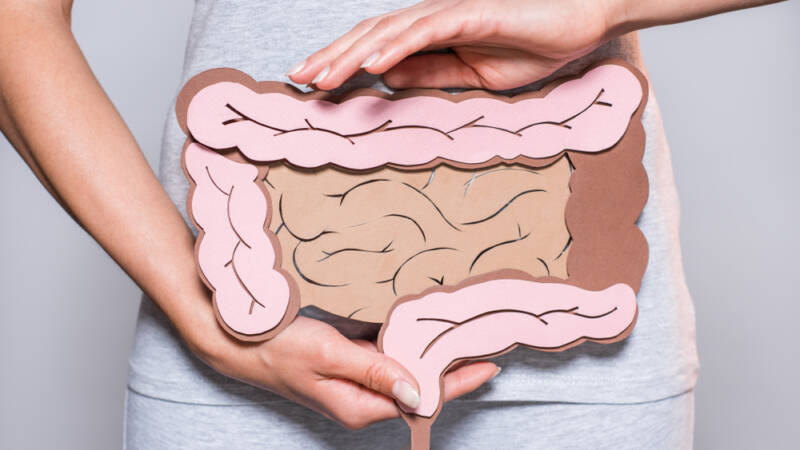Understanding Colon Cancer: Signs, Symptoms and Treatments

Colon cancer is predicted to affect almost 148,000 adults in the United States this year alone, with approximately 53,200 fatalities from the disease. The third deadliest form of cancer for both men and women, the average lifetime risk of developing colon cancer is around one in twenty-three, which works out to be a 4.5 percent chance.
Colon Cancer Overview
Colon cancer is often referred to as a ‘colorectal’ cancer, as it is grouped with cancers of the rectum. The colon is the last part of the digestive tract, also known as the large intestine. Typical cases begin with small benign (noncancerous) growths in the large intestine called polyps. Over time, polyp cells can mutate and develop into malignant cancerous growths. Regular colon cancer screening is recommended in older adults and those with other risk factors, so that polyps can be detected and removed before they become cancerous.
Types of Colon Cancer
The most common type of colon cancer is adenocarcinoma, which begins in the epithelial cells that form the lining of the gut. Among the less prevalent types of colon cancer are:
- Carcinoid tumors – cancer of the intestine’s hormone-producing cells
- Lymphoma – cancer of the lymph nodes, which can start in the colon
- Gastrointestinal stromal tumors – cancer of ‘soft tissues’ such as fat, muscles, or blood vessels
All colon cancers can be categorized as either localized (contained to the colon), regional (spread to nearby tissues), or distant (spread to distant body parts like the lungs or liver).
Known Causes and Risk Factors
A person’s risk of developing colon cancer is largely determined by their lifestyle. The following behaviors greatly increase colon cancer risk:
- Eating a diet high in red or processed meat
- Consuming too much alcohol
- Smoking
- Insufficient exercise
- Obesity (especially where extra fat is in the abdominal area)
There are also risk factors which are not lifestyle related. As mentioned above, the risk of developing colon cancer increases with age. Additionally, people with a history of inflammatory bowel disease or whose parents have had colon cancer are also at greater risk.
Early Signs and Symptoms
The early symptoms of colon cancer are usually mild and often go unnoticed, hence the importance of routine screening. The following signs could be indicators:
- Blood in the stool or rectal bleeding
- A significant change in bowel behavior
- Abdominal pain
- Abdominal bloating
- Unexplained weight loss
- Extreme fatigue
- The urge to have a bowl movement that is not eased by having one
Treatment Options
Colon cancer patients have several treatment options available to them including:
- Surgery – To remove the cancerous tissue or a section of the colon (this is known as a colostomy)
- Radiation therapy – Beams of high-strength radiation target cancerous cells
- Chemotherapy – Medicine taken orally or intravenously to kill cancer cells
- Immunotherapy – A medicinal treatment designed to support the body’s immune system in fighting the colon cancer
Which treatment or combination of treatments a doctor recommends will depend on the type and severity of the colon cancer, the patient’s overall health, and potential side-effects. Talk to your doctor immediately if you are experiencing serious and persistent symptoms which you believe may be caused by colon cancer.